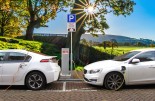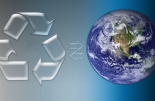AXA IM: A silver lining for energy efficiency
AXA IM: A silver lining for energy efficiency

Two-thirds (ca. 65%) of the energy injected into the system is of no use as it gets lost by conversion, transportation, and end-user. Reducing those energy losses is possible through traditional efficiency gains and more significantly by electrifying processes and end uses, writes AXA Investment Managers’ Head of Climate Research Olivier Eugène.
According to the IEA, energy efficiency has improved by slightly above 1% per annum over the past 20 years, with better results in recent years. In practice, the COP28 agreement, including a dedicated pledge on efficiency calls for achieving 4% annual efficiency gains.
In his latest article, Eugène tackles the question on how to increase energy efficiency. “The right policy is required to support more efficient solutions, for instance better housing insulation, access to still expensive electric cars, or public transportation. Policy also ought to support electrification more broadly. It makes sense to incentivise industries and people to go electric, because an electricity-powered machine is always more efficient than a fossil fuel-powered machine,” he says.
Eugène establishes the following main points as for the path to improved energy efficiency:
- Electrify what can be: light and medium-duty transportation; some heavy-duty transportation; heating, ventilation and air conditioning; engines and motors; low and medium industrial heat
- Decarbonize electricity production
- Tackle areas where electricity is not the solution: high temperature industrial heat (more than 850°C); aviation; long-haul shipping; certain heavy duty on and off-road equipment. The main options are to be found in bioenergy, hydrogen, or e-fuels
'From an investor point of view, this means that thereare opportunities to invest in companies that can deliver energy efficiency gains and in the broad electrification ecosystem. Those are far from being new trends, but they are structural and provide long-term visibility,' Eugène adds.









